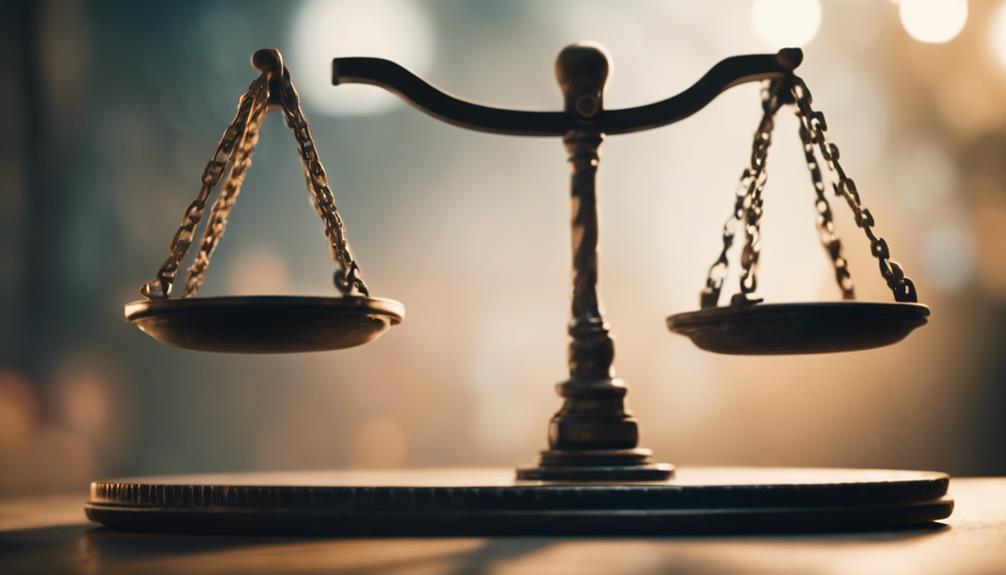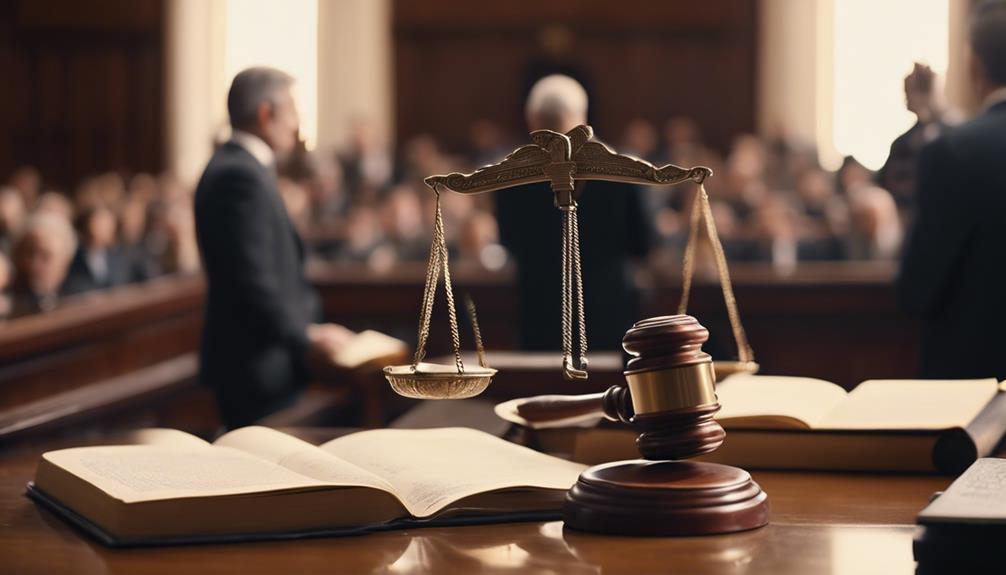The intricate interplay between law and order in society has long been a subject of scholarly debate and practical concern. From the establishment of legal systems to the enforcement of regulations, the relationship between maintaining order and upholding the rule of law is fundamental to the functioning of any community.
But how does this relationship shape social dynamics, influence individual behavior, and impact the overall stability of society? By examining the complexities of legal compliance, the role of law enforcement, and the challenges posed to maintaining order, a deeper understanding of this crucial relationship emerges.
Historical Development of Legal Systems

The historical development of legal systems traces the evolution of societal norms and regulations governing behavior and resolving disputes. Legal systems have evolved over centuries, shaped by cultural, political, and social factors. Ancient civilizations such as Mesopotamia, Egypt, Greece, and Rome laid the groundwork for modern legal systems by establishing codes of conduct and mechanisms for resolving conflicts. These early legal systems often intertwined religious beliefs with secular laws, reflecting the values and norms of their societies.
As societies became more complex, legal systems evolved to address new challenges and regulate increasingly diverse populations. The development of common law in England, civil law in continental Europe, and other legal traditions around the world further demonstrates the adaptability and diversity of legal systems. Over time, legal systems have incorporated principles of justice, equality, and due process to ensure fair treatment and uphold the rule of law.
Understanding the historical development of legal systems provides insights into the foundations of contemporary legal frameworks and the ongoing quest for justice and order in society.
Role of Law in Maintaining Order
Ensuring societal harmony and stability, the role of law in maintaining order is fundamental to upholding the fabric of a functioning society. Laws serve as the framework within which individuals, communities, and institutions operate, setting boundaries and expectations for behavior. By establishing clear guidelines and consequences for actions, laws provide a sense of predictability and structure that is essential for a peaceful coexistence.
Moreover, the role of law in maintaining order extends beyond just regulating individual behavior. Laws also play a crucial role in resolving conflicts, protecting individual rights, and promoting justice. Through mechanisms such as the legal system, courts, and enforcement agencies, the law provides avenues for addressing disputes and holding individuals accountable for their actions.
In essence, the presence of a well-defined legal system is essential for fostering a sense of security and order within society. It not only deters individuals from engaging in harmful behaviors but also provides a sense of assurance that wrongdoing will be addressed appropriately. Ultimately, the role of law in maintaining order is indispensable for creating a stable and functioning social environment.
Enforcement of Laws and Regulations

Maintaining societal order and compliance with laws and regulations requires a robust system of enforcement. Enforcement of laws and regulations is essential to uphold the rule of law and ensure that individuals and entities adhere to societal norms. Law enforcement agencies, regulatory bodies, and judicial systems play key roles in enforcing these laws.
Law enforcement agencies such as the police are responsible for enforcing criminal laws by investigating crimes, making arrests, and ensuring public safety. Regulatory bodies oversee specific industries or sectors, monitoring compliance with regulations and taking enforcement actions against violators. Judicial systems adjudicate legal disputes, interpret laws, and impose penalties on those found guilty of non-compliance.
Effective enforcement of laws and regulations deters individuals and organizations from engaging in illegal or harmful activities, thereby promoting a safe and orderly society. It also helps maintain public trust in the legal system and ensures accountability for wrongful actions. By enforcing laws fairly and consistently, societies can promote justice, uphold order, and protect the rights and well-being of their citizens.
Impact of Legal Compliance on Society
Legal compliance shapes societal behavior and fosters a culture of accountability and responsibility among individuals and organizations alike. When members of society adhere to the laws and regulations set forth by governing bodies, it creates a sense of order and predictability. This adherence helps in maintaining stability and promoting the overall well-being of the community.
Moreover, legal compliance plays a crucial role in promoting fairness and justice. By following the established laws, individuals ensure that their actions do not infringe upon the rights and freedoms of others. This, in turn, fosters a harmonious environment where conflicts are minimized, and disputes can be resolved through legal means.
Additionally, the impact of legal compliance extends to economic prosperity. When businesses and individuals comply with laws related to taxation, labor, and trade, it creates a level playing field that encourages growth and innovation. Legal compliance also enhances trust between stakeholders, which is essential for the functioning of a healthy economy.
In essence, legal compliance is a cornerstone of a well-functioning society, promoting order, justice, and prosperity for all its members.
Balancing Individual Rights With Public Order

The delicate balance between safeguarding individual rights and upholding public order is a fundamental challenge in creating a harmonious and just society. Individual rights are essential in ensuring that each person is treated fairly and has the freedom to express themselves, practice their beliefs, and pursue their aspirations without unjust interference.
On the other hand, maintaining public order is crucial for preserving safety, security, and the overall well-being of society as a whole.
Balancing these two aspects requires a nuanced approach that considers the needs and perspectives of both individuals and the collective. It involves creating laws and regulations that protect individual liberties while also setting boundaries to prevent actions that could harm others or disrupt the peace. Additionally, effective communication, education, and conflict resolution mechanisms play vital roles in managing tensions that may arise between individual rights and public order.
Ultimately, achieving a harmonious balance between individual rights and public order is a continuous process that necessitates ongoing evaluation, adaptation, and respect for the rule of law to ensure a just and cohesive society.
Legal Framework for Social Harmony
An effective legal framework is essential for fostering social harmony within a diverse and interconnected society. The legal framework serves as the backbone of a cohesive community by providing guidelines, regulations, and consequences for actions that may disrupt the peace and order. It sets the standards for acceptable behavior, resolves disputes, and upholds justice, thus contributing to the overall stability and well-being of society.
One key aspect of the legal framework for social harmony is the establishment of laws that protect individual rights while also ensuring the collective good. These laws aim to strike a balance between the autonomy of individuals and the need for public order, promoting a sense of fairness and equality among all members of the community. Additionally, mechanisms such as law enforcement agencies, courts, and legal procedures work together to uphold these laws and ensure compliance, thereby maintaining social cohesion and preventing conflicts from escalating.
Furthermore, the legal framework plays a crucial role in promoting accountability, transparency, and trust within society. By holding individuals accountable for their actions and decisions, the legal system helps deter criminal behavior, promote ethical conduct, and ultimately cultivate a culture of respect for the rule of law. Overall, a well-functioning legal framework is indispensable for creating a harmonious and orderly social environment where individuals can coexist peacefully and thrive.
Challenges to Law and Order Maintenance

In the face of evolving societal dynamics and emerging technological advancements, maintaining law and order faces a myriad of complex challenges that test the efficacy of established legal systems and enforcement mechanisms. One significant challenge is the rise of cybercrimes, which transcend geographical boundaries and pose difficulties for traditional law enforcement methods. The anonymity and sophistication of cybercriminals make it challenging for authorities to investigate and prosecute such offenses effectively. Additionally, the proliferation of fake news and misinformation on social media platforms has the potential to incite violence and create social unrest, complicating efforts to maintain order within communities.
Furthermore, issues such as political unrest, economic disparities, and cultural differences can also strain law and order maintenance. Political protests and civil disobedience movements often test the boundaries of legal frameworks, requiring authorities to strike a delicate balance between upholding the rule of law and respecting citizens' rights to peaceful assembly. Economic inequalities can lead to increased criminal activities, putting pressure on law enforcement agencies to address root causes while maintaining public safety. Cultural diversity can also present challenges, as varying norms and values may conflict with established legal principles, necessitating nuanced approaches to ensure harmony within society.
Community Policing and Crime Prevention
Community policing and crime prevention strategies play a crucial role in fostering trust between law enforcement agencies and the communities they serve. By actively engaging with the community, law enforcement officers can build relationships, gather valuable intelligence, and address underlying issues that contribute to crime. Community policing emphasizes collaboration between the police and community members to identify problems, develop solutions, and enhance overall public safety.
One key aspect of community policing is the implementation of proactive crime prevention initiatives. These initiatives focus on addressing the root causes of crime, such as poverty, lack of education, substance abuse, and mental health issues. By working together with community members to implement preventative measures, law enforcement agencies can create a safer environment for all residents.
Moreover, community policing helps to improve police legitimacy and effectiveness. When community members feel heard and respected by law enforcement, they are more likely to cooperate with police investigations, report crimes, and support crime prevention efforts. This mutual trust and cooperation are essential for maintaining law and order in society.
Legal Reforms and Social Stability

Legal reforms play a crucial role in maintaining social stability and upholding the rule of law in society. These reforms involve changes to existing laws and legal systems with the goal of addressing societal issues, enhancing justice, and adapting to evolving norms and values.
By updating laws to reflect the current needs and values of the community, legal reforms can help ensure that the legal system remains fair, effective, and relevant.
One significant aspect of legal reforms is the promotion of equality and justice for all members of society. Reforms that focus on protecting individual rights, combating discrimination, and ensuring access to justice can contribute to social stability by fostering trust in the legal system.
Moreover, legal reforms can help streamline legal processes, improve transparency, and enhance accountability, all of which are essential for maintaining order and stability in society.
Future Trends in Law and Order Governance
Anticipating the evolution of societal norms and technological advancements, the governance of law and order is poised to undergo transformative shifts in the coming years. One significant trend is the increasing use of artificial intelligence (AI) and data analytics in law enforcement. Predictive policing, where AI algorithms forecast potential criminal activity, is gaining traction. However, this technology raises concerns about privacy rights and bias in decision-making.
Additionally, the rise of cybercrimes necessitates a focus on digital law enforcement capabilities. Strengthening cybersecurity measures and developing expertise in investigating online offenses will be crucial for future law enforcement agencies.
Moreover, the concept of community policing is likely to expand, emphasizing collaboration between law enforcement and local communities to address crime and social issues collectively. This approach fosters trust and cooperation, essential for maintaining public safety.
Furthermore, with the growing interconnectedness of nations, international cooperation in law enforcement will become more vital. Harmonizing legal frameworks and enhancing information-sharing mechanisms will be necessary to combat transnational crimes effectively. As society evolves, so too must the governance of law and order to ensure continued safety and justice for all.
Frequently Asked Questions
How Do Cultural Differences Impact the Relationship Between Law and Order in Society?
Cultural differences play a significant role in shaping the dynamics of law and order within society. These differences impact how laws are interpreted, enforced, and adhered to, influencing the overall effectiveness of maintaining order and justice.
What Role Do Technology and Surveillance Play in Maintaining Law and Order?
Technology and surveillance are pivotal in maintaining law and order by enhancing monitoring capabilities and evidence collection. They aid in crime prevention, investigation, and ensuring public safety. Properly utilized, these tools can bolster security measures and deter unlawful activities.
How Does Economic Inequality Affect Compliance With Laws and Regulations?
Economic inequality can erode compliance with laws and regulations by creating disparities in access to legal resources, opportunities, and enforcement. It may foster resentment, perpetuate injustices, and undermine social cohesion, challenging the foundation of order in society.
What Is the Impact of International Law on Domestic Law and Order?
The impact of international law on domestic law and order involves the integration of international legal norms into a nation's legal framework, influencing legislation, judicial decisions, and law enforcement practices to maintain order and uphold international standards.
How Do Political Ideologies Influence the Enforcement of Laws and Regulations in Society?
Political ideologies significantly impact the enforcement of laws and regulations in society by shaping the priorities, values, and approaches of governing bodies. These ideologies influence legal interpretations, enforcement mechanisms, and societal perceptions of justice.
Conclusion
In conclusion, the relationship between law and order in society is essential for maintaining social stability and promoting a functional community.
Through the enforcement of laws and regulations, legal systems play a crucial role in upholding public order and ensuring the protection of individual rights.
Challenges to law and order maintenance require constant vigilance and adaptation, with community policing and legal reforms being key strategies to address these issues and promote social harmony.










